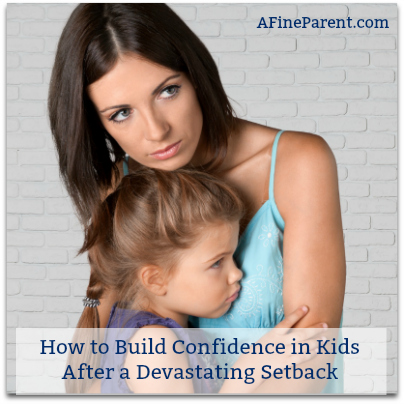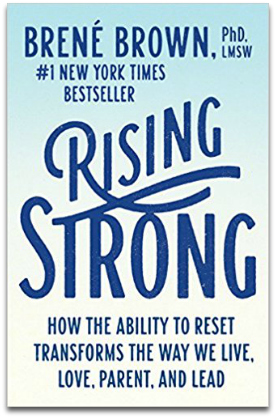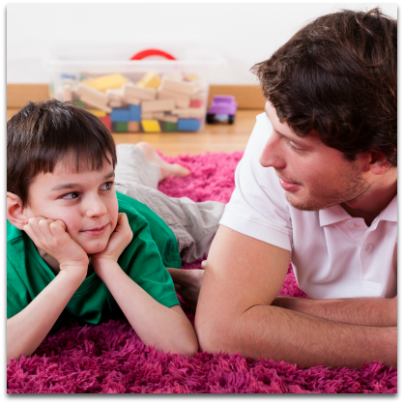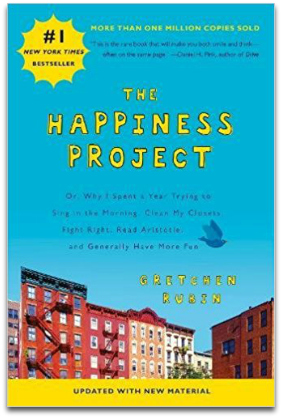 It is hard to keep your confidence and self-esteem intact after suffering a major setback yourself.
It is hard to keep your confidence and self-esteem intact after suffering a major setback yourself.
But there is something harder—watching your child go through those soul-shattering feelings and feeling your own heart crumble to bits within your body.
We have all likely seen these things happen.
Seen our child locked up in a room because “everyone hates her!”
Or caught our child saying, “I so suck at this, what’s the point of even trying?”
Or seen them being insulted for just being themselves, and watch them go through stages of grief—confusion, denial, anger—and then the thing that no parent will want to see—acceptance.
Our older daughter had always had skin flare-ups due to eczema, mildly as a baby and more strongly as a toddler. However, at the age of seven, she suffered a sudden and extreme flare-up. Her skin became so flaky and patchy, it began to peel off in places.
 We hopped from doctor to doctor hoping for a remedy, but this time it had come back with a vengeance. The restrictions on her diet kept piling up, her medicine dosage kept increasing—only to see her weakening.
We hopped from doctor to doctor hoping for a remedy, but this time it had come back with a vengeance. The restrictions on her diet kept piling up, her medicine dosage kept increasing—only to see her weakening.
Her sleep was fitful, her diet scattered. Her activity had already become restricted because of photo-sensitivity. She had to wear clothes that covered her rashes from exposure to the dust and sun. She had to be always slathered in layers and layers of creams and oils to soothe her skin, even if they could soothe her only a little.
Obviously, she went through tremendous physical distress. Yet, I was scared of something even more monstrous than this physical manifestation. I was terrified of her letting it become her identity, of letting it break her confidence, of letting it limit her mentally.
And then, one evening—my fear came true.
India still allows children to go out of their homes and play by themselves. One evening, she came home and said quietly, “N’s mother has forbidden her from playing with me because I have rashes.”
I waited in silence. I didn’t comfort her immediately—too scared that she might sense that I already expected it because it came too soon. She sat down, leaning against the wall, arms crossed, and chest heaving in anger.
And then, she bawled. Amidst the torrent of tears and snot, I heard what I feared the most: “Why me?”
Perhaps that was the moment she had begun to deeply identify with her setback.
Gradually, I noticed that she was reluctant to meet people. I would find her instinctively covering the back of her palms if someone even seemed to be coming closer. She would attempt to hide behind me at the supermarket.
She would examine herself in front of the mirror for long periods of time. She would kiss me repeatedly and ask to be kissed back. She refused to even see doctors.
My husband and I were already stressed with taking care of the physical hardship she was going through. We took turns at night to watch her—else she would scratch herself bloody within seconds.
Yet, we knew that it was absolutely crucial to smooth out those psychological knots that were forming in her. We decided to work on them very intentionally—one step at a time.
Equip for Self-Care
 Earlier, we were hesitant to discuss her condition openly with her, for fear of blowing it out of proportion in her mind. However, after a while, we decided that the best approach was to be open about it and let her know that we are all trying our best to get her well.
Earlier, we were hesitant to discuss her condition openly with her, for fear of blowing it out of proportion in her mind. However, after a while, we decided that the best approach was to be open about it and let her know that we are all trying our best to get her well.
In all honesty, children are not only well-equipped to sense challenges (even if you think you are hiding them well), but they also respond better when they are involved in being part of the solution.
As a first step, we let her see that we all cared. She would see not just us but even her grandparents stroking her lovingly, sending her medicinal oils that helped, and praying for her. At every step, she got the message that we had a problem, but we, as a family, can learn ways to overcome it.
Second, we made sure she knew about her condition well enough to know what questions and responses she should expect from other people.
Third, we equipped her with everything she needed for self-care. For example, we told her to train herself to apply her oil every hour when in school, instead of relying on a teacher. We also told her that other people are eager to help her, but might get busy.
We equipped her to tell her friends that she would not be able to play in the sun, and instead, politely ask them to play another game. We explained to her that it is important that she herself tells her teacher that she would like to sit away from the chalkboard or the window. We stressed the importance of accepting compliments gracefully. We insisted that she say it politely, but unapologetically.
Fourth, we accepted whatever she was feeling and went with her pace. She once got invited to a sleepover but refused to go, because she was afraid that she wouldn’t be able to sleep on their sheets. We simply took her to a movie instead. We learned that listening without fear or resistance is the first step to true empathy.
Show That it is Not to be Feared
 In the book Rising Strong, Brené Brown talks about an incident, where she helped her daughter cope with dejection over being bundled as “others” in a game. Of course, her daughter didn’t feel understood, because—how exactly would her mom know how it felt? She never even played games like that. Until—on another occasion—when Brené herself saw her name listed among “others” for a speaking event she had much looked forward to, and she shared it with her daughter. Brené talks about how both mom and daughter sat on the couch in silence, holding each other, completely sharing the moment.
In the book Rising Strong, Brené Brown talks about an incident, where she helped her daughter cope with dejection over being bundled as “others” in a game. Of course, her daughter didn’t feel understood, because—how exactly would her mom know how it felt? She never even played games like that. Until—on another occasion—when Brené herself saw her name listed among “others” for a speaking event she had much looked forward to, and she shared it with her daughter. Brené talks about how both mom and daughter sat on the couch in silence, holding each other, completely sharing the moment.
I decided to use this and come open about my own suffering to my daughter. At the time, I was also going through severe symptoms of endometriosis and was forced to give up many things that I liked (coffee!). I brought her attention to my own condition. I showed her videos of several people around the world who were in pain but kicked ass. I constantly read her stories where mental power trumped physical power.
My purpose was to point out to her that nobody in the world is really alien to pain. Pain can really take several forms— and hers is just one form of pain.
Avoid Indulging Their Place of Weakness
 My husband is a stickler for this one. On several occasions, he organized games and little contests for my daughters (and their friends). As children, there was a tendency to come up with excuses for not winning or doing their part, and we saw this happening a lot with my daughter.
My husband is a stickler for this one. On several occasions, he organized games and little contests for my daughters (and their friends). As children, there was a tendency to come up with excuses for not winning or doing their part, and we saw this happening a lot with my daughter.
If she saw her younger sister or a friend winning, she would declare the game unfair because she was “sick.” My husband quickly caught this pattern and would go on to debate about how exactly her skin interfered with her chances of winning a particular game.
In short, he refused to indulge her weakness.
Studies confirm that having consistently higher expectations from kids helps them perform better. Slowly but surely, we saw her confidence inching upwards.
Take a Wholesome Approach
 Gretchen Rubin, in her book, The Happiness Project, examined the effects of small changes in specific areas of your life on the overall happiness in life. Turns out that improvements in any one area can have a domino effect on several other areas of life.
Gretchen Rubin, in her book, The Happiness Project, examined the effects of small changes in specific areas of your life on the overall happiness in life. Turns out that improvements in any one area can have a domino effect on several other areas of life.
It was true in our daughter’s case. We signed her up for dance classes, and the fact that it was a very visual art medium helped her boost her confidence. Similarly, we could see her perking up when she could demonstrate her art skills in class. These interactions reinforced her positive self-image, and we saw her confidence slowly returning.
Recognize Guilt and Replace with Feelings of Worthiness
 As the days passed, our daughter noticed that we were sleep-deprived and struggling too.
As the days passed, our daughter noticed that we were sleep-deprived and struggling too.
Often, she would say guiltily, “I know it is because of me you didn’t sleep.” And every chance we got, we would respond with, “Yeah, but you know what? We care for people we love, and you are getting better. That matters so much more!”
After a harrowing two years, our daughter is now largely free of eczema and completely off steroids. (Avocado oil sourced from Uganda turned out to be miraculous for her). She is learning to play the Veena, an ancient and unique Indian musical instrument, under the tutelage of an extraordinary teacher. She enjoys school, reading, music, drawing, dance, badminton, and—most of all—talking our ears off!
 The 2-minute Action Plan for Parents
The 2-minute Action Plan for Parents
Take two minutes to reflect on:
- Are you shielding your child from reality out of fear?
- What can you do to remove your child from your fear radar?
- Are there ways you can equip your child to handle the situation better?
- How are you reinforcing thought patterns in your child?
- Are there instances where you indulge their perception of weakness?
- Have you looked at other areas of their lives that can impact their self-image?
The Ongoing Action Plan for Parents
- Identify your biggest fear.
- Over the next few days, analyze what it is that is holding you back from discussing the condition concerning your child with them. Once you recognize it, break it down and examine practical solutions to the problem.
- Avoid focusing on the problem and shift emphasis to other areas of development.
- Make a plan to identify other strengths and interests in your child and find ways to develop them.
- Avoid giving in to “can’t-do” phrases.
- Reinforce positivity by refusing to accept their reluctance to try.
- Say “I Love You” Often.
Love these tips, building confidence in kids lays the groundwork for a lifetime of resilience.
A very nice write up. It helps in inculcating positivity in us and help face difficult situations in a better way.
Thank you for this helpful article. I would simply add a gratitude practice to the tool box to help recovery from setbacks since it focuses attention on what we have and cultivates a positive outlook.